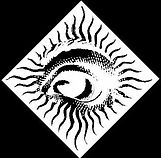
“Robinson’s score (for Frank Borzage’s ‘Seventh Heaven’) was a superbly crafted montage of leitmotifs: for the lovely heroine, string chords in the style of the ‘Moonlight’ interlude from Peter Grimes: for the power of fate, ominous bluesy music; and for war, cello chords and spiteful noises from the nether regions of the tenor sax. Robinson has the art of doing these things with perfect continuity.”
Nicholas Williams ‘The Independent’
Hi there, me and my friends were at the ‘Der Golem’ screening in Sheffield last week. We absolutely loved it and was wondering if there’s any way where we could listen to the score you played? Cheers Ben Mathews
Paul Robinson is a composer who has written in most contemporary genres, including Ballet, Orchestral, Film and Contemporary Chamber Music. His performing ensemble HarmonieBand have performed many of his scores to silent films in major Art Centres and Cinemas in the UK and Europe.
He has received several prizes for composition including a joint winner prize for the Tong Hasegawa Piano Duo competition, the Special Prize for the Luxembourg Sinfonietta International Composers Competition, a joint prize in the first Hilliard Ensemble Composers competition the Pierro Pezze Prize in the International composers competition 'Citta di Udine'
He has received numerous commissions from professional performing ensembles, including the Northern Sinfonia, Scottish Ballet, the Hilliard Ensemble and the London Schools Symphony Orchestra. His most recent commission is for a work for piano quartet, harp (Ensemble 360) and chorus (The Hepton Singers) premiered at Square Chapel Halifax in 2018 to celebrate the opening of the new refurbished Arts Centre. He teaches at the Royal College of Music.
Dai Pritchard - Saxophone is active as a clarinettist and saxophonist in both the jazz and classical worlds of music. He was an original member of Django Bates’ big band Loose Tubes and also plays with the Pasadena Roof Orchestra, the Quadraphonic Saxophone Quartet and Stephen Warbeck’s “The Kippers”. He works regularly in various productions for the Globe Theatre Company.
Kim Mackrell - Cello
Kim studied cello at the Guildhall School of Music and Drama with Leonard Stein. She won the Guildhall School Cello prize in her final year. She has worked abroad, as principal cellist in the Las Palmas Philharmonic Orchestra, and as a member of the Guildhall Quartet in Bermuda.
She joined the BBC Philharmonic in Manchester, leaving after six years to freelance with the major Symphony and Chamber Orchestras in the north. Returning to London she joined the Kosh Dance /Theatre Company as solo cellist for a production that toured Europe. Since then she has worked regularly with the London Symphony Orchestra and other major London orchestras.
She has been a member of Harmonie Band for 20 years, performing original scores for silent film. The band has performed with film and as a contemporary music group many times in venues such as the Purcell Room and Queen Elizabeth Hall. For 12 years she was a member of the Solarek Piano Trio which performed widely in this country and Europe, including performances at the Purcell Room and St David’s Hall in Cardiff.
Alongside her orchestral engagements, Kim has a thriving teaching practise and in 2008 founded Chamber Cellos courses for adult amateur players.
Paul Robinson’s vivid music used recurring melodic themes as a navigational aid to Cocteau’s twisty play.
To start: an ironic brittle triumphalism, as an artist works on a portrait of a woman. Then the painting’s mouth suddenly appears on his hand, and a statue of a woman comes to life. The artist splashes through a mirror to land in the ‘Hall of Theatrical Follies’ and the band swerve cheerfully from demented French coffee house dance music, via a folksy snake - charming arabesque, to a grieving tango.
Robinson’s musical imagination also encompasses echoes of minimalism, with a rapid tenor piano riff underpinning wailing saxophones and more abstract, atonal effects, for the appearance of an angel. The film’s ending, with the statues ambivalence towards immortality, was matched by a wide open suspended chord, over which a glockenspiel line slowly faded from the ear, as a dream fades upon waking.” Stephen Poole The Independent'